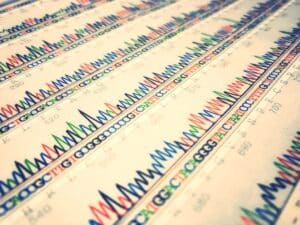This project will develop a software tool to rapidly look for metabolism anomalies in an individual which might be explained by their genes. It will also look for potentially damaging genes in individuals and it will attempt to group ME/CFS patients based on their genetic and metabolic profiles.
This project aims to create a tool that can quickly identify unusual metabolic patterns in individuals that might be linked to their genetic makeup. It will also search for genes that could potentially cause harm. Specifically, the tool will be used to classify patients with ME/CFS (Myalgic Encephalomyelitis/Chronic Fatigue Syndrome) based on their genetic and metabolic information.
The tool will be designed using data from over 1,000 people who reported having ME/CFS in the UK Biobank, which holds clinical data and blood samples from more than 300,000 individuals. By comparing these ME/CFS patients with others who have similar illnesses, we have been able to spot unique metabolic patterns that help identify ME/CFS in a person.
This new tool will be especially useful for doctors as it will make diagnosing ME/CFS faster and more accurate by spotting genetic and metabolic issues that might otherwise go unnoticed.
